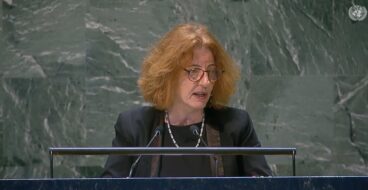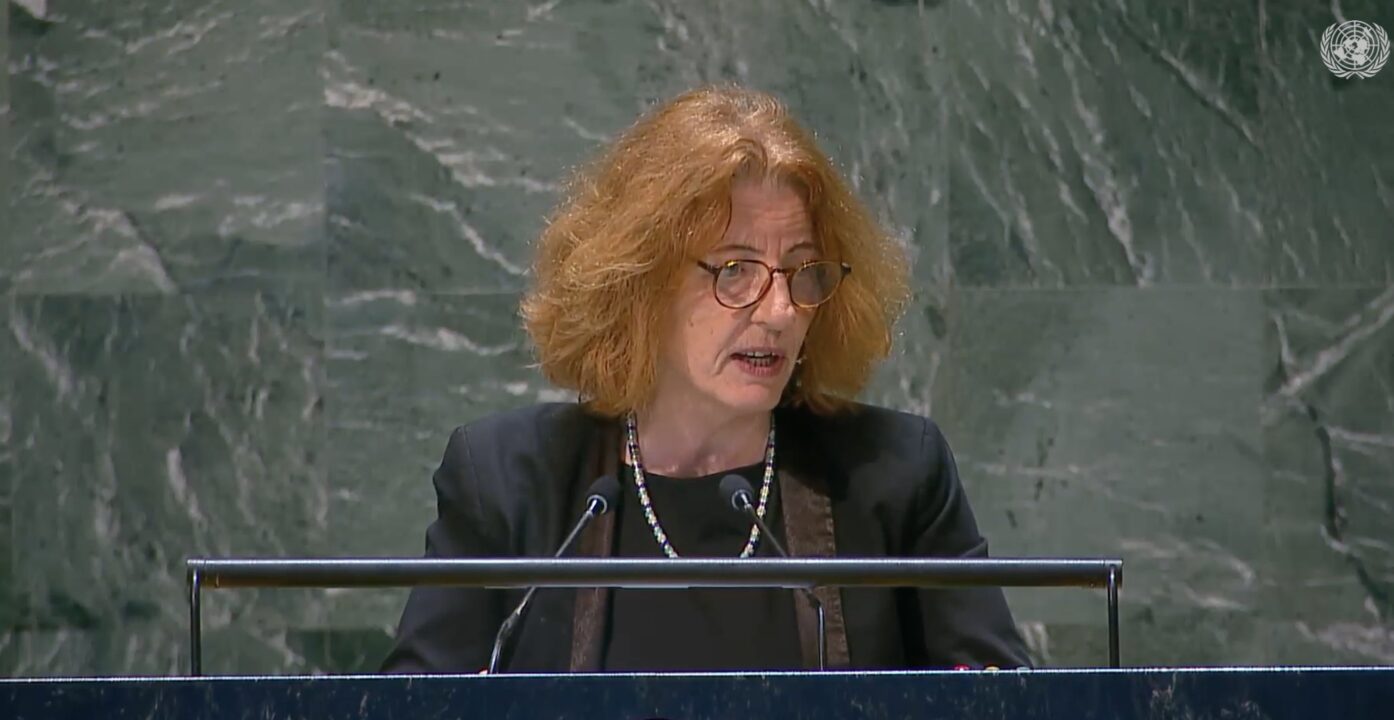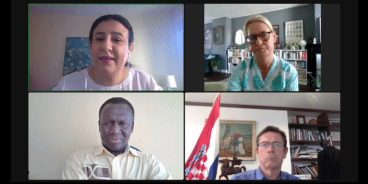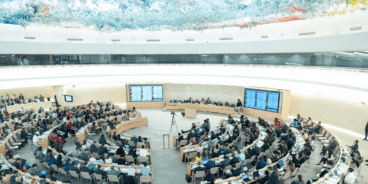

Statement by the UN Special Adviser on R2P at the 2024 UN General Assembly Debate on R2P
Mr. President,
Distinguished Delegates,
Excellencies,
Ladies and Gentlemen,
Nineteen years ago, at the 2005 World Summit, the General Assembly recognized that each individual State has the responsibility to protect its populations from genocide, war crimes, ethnic cleansing, and crimes against humanity.
The adoption of this principle raised great hopes. It was seen as a promise on the part of the Member States of the United Nations that they would make every effort to prevent such crimes and to protect their own populations from these atrocities. Yet, it is apparent that the promise of halting atrocity crimes remains largely unfulfilled.
All too often we react to early warnings about the risk of atrocity crimes with indifference or denial. We do not take timely decisions to prevent and halt atrocities or we are shocked into inaction.
Today we witness the blatant disregard, violation and abuse of international humanitarian law and international human rights law by state and non-state actors in real time.
Excellencies, Ladies and Gentlemen,
In 2005, Member States also agreed that the international community should, as appropriate, encourage and help States to exercise the Responsibility to Protect. If peaceful means are inadequate and national authorities manifestly fail to protect their populations, the international community should stand ready to take collective action. Such action should be timely and decisive, conducted through the Security Council, and in strict accordance with the procedures outlined in our United Nations Charter.
However, lack of unanimity by Permanent Members of the Council has at times prevented it from exercising its duty to maintain international peace and security. As such moments occur more often in recent memory, they threaten to undermine trust in the international system. They result in a growing sense of unease among nations and populations that governments and international organizations are failing to deliver for them or that double standards are implemented.
Seeking to fill this void, this General Assembly has seen fit to act and make recommendations regarding international peace and security.
Excellencies,
The report discussed today reflects upon the challenges we are facing and suggests ways forward to implement the Responsibility to Protect. It also identifies the progress realized since 2005.
This progress includes knowledge and practical experience on risk factors, causes, and dynamics that drive atrocity crimes – all of which have been studied in detail or examined in opinions by international tribunals. Furthermore, as understanding has developed, so have the tools and instruments designed to support early decision-making from an atrocity prevention and protection viewpoint available to all stakeholders – United Nations, Member States and regional bodies.
Lessons learned from past experience demonstrate that no society is immune to atrocity crimes. Governments, in consultation with national, regional and international prevention experts as appropriate and with civil society, are responsible for the ongoing task of monitoring and ensuring that adequate atrocity prevention and protection measures are in place.
Given all of this expertise, why do atrocity crimes continue to happen?
There is no simple answer to this question. The report attempts to underscore that the problem is not rooted in a lack of political will nor is it simply about disagreements on the Responsibility to Protect – a concept that by its own definition can only be operationalized in a collective manner by adhering to procedures outlined in the Charter that every Member State of the United Nations is obligated to uphold in good faith.
Rather, the report touches upon several more nuanced factors, among them the challenge of agreeing on measures that prevent and protect against atrocity crimes and how to implement them.
Excellencies,
The twentieth anniversary of the Responsibility to Protect in 2025 represents a unique opportunity to take stock, analyze and identify ways for Member States to work together, with full respect for one another’s sovereign equality and territorial integrity, as good neighbors, to protect populations from atrocities.
Leading up to this anniversary, Member States which have created national prevention mechanisms and regional bodies that have developed collaborative efforts could share their experiences, best practices and lessons learned, enabling other Member States to consider how or whether these models could be adapted to their realities.
Such a stock-taking exercise and exchange would contribute to recommendations on the Responsibility to Protect, reflecting the broadest consensus among Member States with regard to atrocity prevention and protection. My Special Advisor is ready to support all Member States in this endeavor, upon their request.
The Responsibility to Protect expresses our deepest commitment on a collective level to protect humanity from atrocities everywhere in the world. I am very keen to listen to your recommendations to make our commitment a reality.
Thank you.
Related Content


